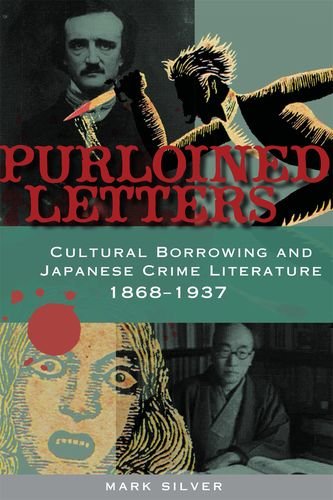

Most ebook files are in PDF format, so you can easily read them using various software such as Foxit Reader or directly on the Google Chrome browser.
Some ebook files are released by publishers in other formats such as .awz, .mobi, .epub, .fb2, etc. You may need to install specific software to read these formats on mobile/PC, such as Calibre.
Please read the tutorial at this link. https://ebooknice.com/page/post?id=faq
We offer FREE conversion to the popular formats you request; however, this may take some time. Therefore, right after payment, please email us, and we will try to provide the service as quickly as possible.
For some exceptional file formats or broken links (if any), please refrain from opening any disputes. Instead, email us first, and we will try to assist within a maximum of 6 hours.
EbookNice Team

Status:
Available5.0
27 reviews
ISBN 10: 0824864050
ISBN 13: 9780824864057
Author: Mark Silver
This engaging study of the detective story’s arrival in Japan—and of the broader cross-cultural borrowing that accompanied it—argues for a reassessment of existing models of literary influence between “unequal” cultures. Because the detective story had no pre-existing native equivalent in Japan, the genre’s formulaic structure acted as a distinctive cultural marker, making plain the process of its incorporation into late nineteenth- and early twentieth-century Japanese letters. Mark Silver tells the story of Japan’s adoption of this new Western literary form at a time when the nation was also remaking itself in the image of the Western powers. His account calls into question conventional notions of cultural domination and resistance, demonstrating the variety of possible modes for cultural borrowing, the surprising vagaries of intercultural transfer, and the power of the local contexts in which “imitation” occurs.
Purloined Letters considers a fascinating range of primary texts populated by wise judges, faceless corpses, wily confidence women, desperate blackmailers, a fetishist who secrets himself for days inside a leather armchair, and a host of other memorable figures. The work begins by analyzing Tokugawa courtroom narratives and early Meiji biographies of female criminals (dokufu-mono, or “poison-woman stories”), which dominated popular crime writing in Japan before the detective story’s arrival. It then traces the mid-Meiji absorption of French, British, and American detective novels into Japanese literary culture through the quirky translations of muckraking journalist Kuroiwa Ruiko. Subsequent chapters take up a series of detective stories nostalgically set in the old city of Edo by Okamoto Kido (a Kabuki playwright inspired by Arthur Conan Doyle’s Sherlock Holmes) and the erotic, grotesque, and macabre works of Edogawa Ranpo, whose pen-name punned on “Edgar Allan Poe.
1. Cultural Borrowing and Japanese Crime Literature
2. Premodern and Early Meiji Crime Literature
3. Kuroiwa Ruikò and the Uses of Translation
4. Okamoto Kidò’s Stories of Nostalgic Remembrance
5. Edogawa Ranpo’s Horrifying Hybrids
6. Cultural Borrowing Reconsidered
7. Notes
8. Bibliography
9. Index
purloined letters cultural borrowing and japanese crime literature
what is cultural borrowing
cultural borrowing meaning
purloined letter author crossword
the purloined letter writer's monogram
Tags: Mark Silver, Purloined Letters, Cultural Borrowing, Japanese Crime Literature